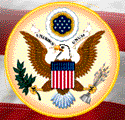 [National Security Presidential Directives - NSPDs]
[National Security Presidential Directives - NSPDs]
National Security Presidential Directive/NSPD-15
NATIONAL SPACE POLICY REVIEW
June 28, 2002
FACT SHEET
The United States depends on defense, intelligence, civil, and commercial space capabilities to protect and defend national security and enhance economic competitiveness. The most recent update of National Space Policy occurred in 1996. Since that time, domestic and international developments have changed significantly the opportunities for, challenges to, and threats confronting U.S. space capabilities. To respond to the new environment, this directive initiates a phased review of national space policy topics.
Guidelines for the Review
The National Security Council, with the support of the Office of Science and Technology Policy, will chair a review of national space policies, using the Space Policy Coordinating Committee (PCC). Agencies and addressees of this directive (or their senior designees) will participate in the review. The chair may invite other agencies to participate as appropriate and may delegate work to be completed under this directive to Space PCC sub-groups.
Scope and Sequence of the Review
The review will focus initially on concurrent reviews that will make recommendations in the following areas on the timetable noted:
1. United States policy on commercial remote sensing and on foreign access to remote sensing space capabilities, and report to the NSC Deputies Committee by November 30, 2002.
The PCC chair will develop the agenda and schedule for follow-on reviews taking account of the recommendations made by agencies and departments.2. United States space transportation policy, and report to the NSC Deputies Committee by December 31, 2002.
3. Revision, consolidation, and/or elimination of existing national policy statements related to space activities, and report to the NSC Deputies Committee by February 28, 2003.